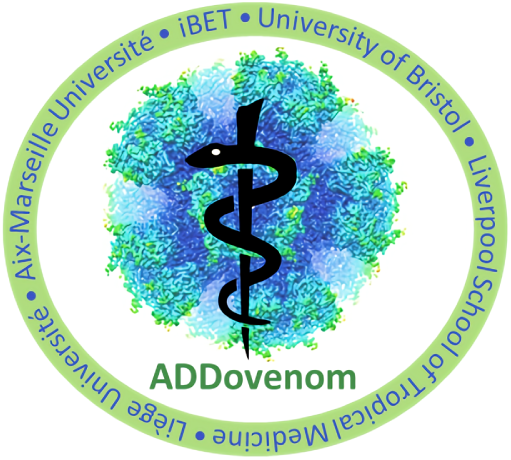For our Researcher Spotlight features, we interview members of the ADDovenom research team, to find out about their interests, their contributions to the project, and their hopes for the future of venom research.
Here, we speak with Renaud Vincentelli, who is the PI of ADDovenom team at CNRS/Aix-Marseille University.
Can you tell us briefly about your own research interests and background?
My prior research interest was in finding innovative technologies and protocols that would unlock the protein production and purification bottlenecks of my collaborator research projects. I’m a biochemist by training who became an E. coli expression expert by needs.
When did you first become interested in venom research?
Fifteen years ago, I was running one of the very few academic high-throughput protein purification facilities in Europe. I was contacted by the coordinator of a new European grant application about a high-throughput investigation of venom diversity for the discovery of novel drug leads. This project, VENOMICS (FP7), was very ambitious and was facing an unmet challenge at the time: the production of thousands of active recombinant venom proteins to make a library for drug discovery. These proteins were known to be very difficult to express in active form and the throughput to achieve this needed to be one hundred times faster than the previous protocols. We successfully met these challenges and generated the biggest library of toxins from two hundred species of venomous animals, including spiders, scorpions, conus, hymenopteran (insects such as sawflies, wasps, bees, and ants) and, of course, snakes!
What are your key responsibilities in the ADDovenom project?
I am in charge of the protein production of the recombinant venom proteins that are the starting material for the selection of ADDobodies.
What do you hope will be the main outputs from your work on ADDovenom?
Snake venom proteins are a very complex mixture of deadly molecules that we need to copy in active form. Their diversity is a challenge compared to our previous collective expertise but we are finding solutions that will be helpful far beyond the development of this new antivenom.
Can you tell us of one recent development in the world of venom research that has interested you?
Venoms are a valuable resource of toxins to mine for drug discoveries. One recent development is the discovery of a single toxin that could protect the heart and brain during strokes and heart attack, potentially saving millions of lives.
Do you have a favourite snake – if so, which one, and why?
I had the chance to meet several sea snakes while diving in tropical seas. They are beautiful and scary but usually too small to be dangerous to humans!


